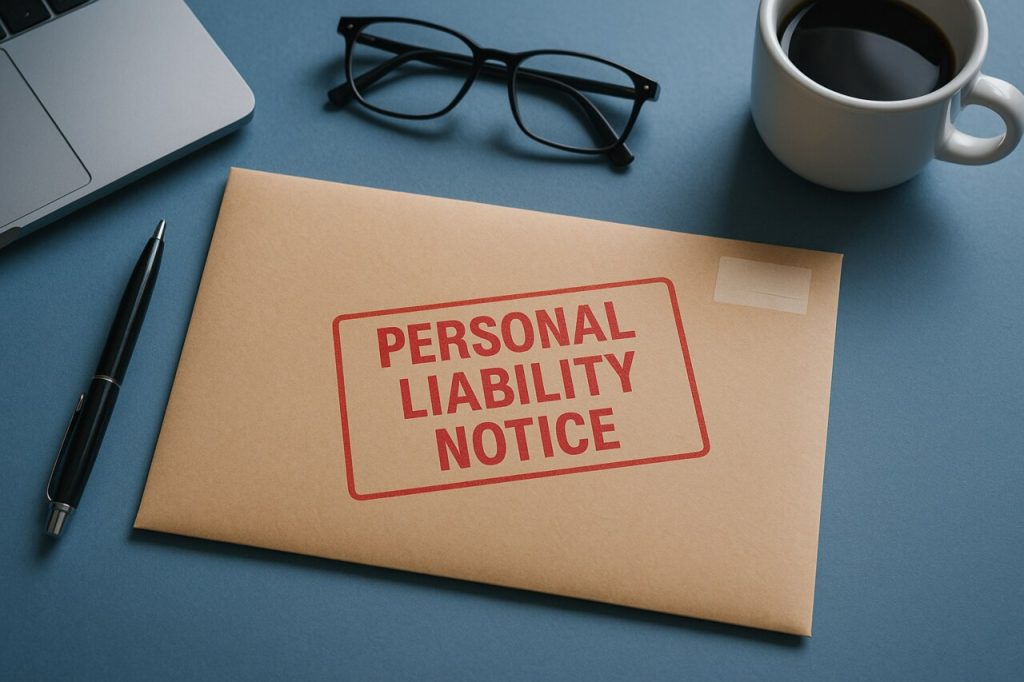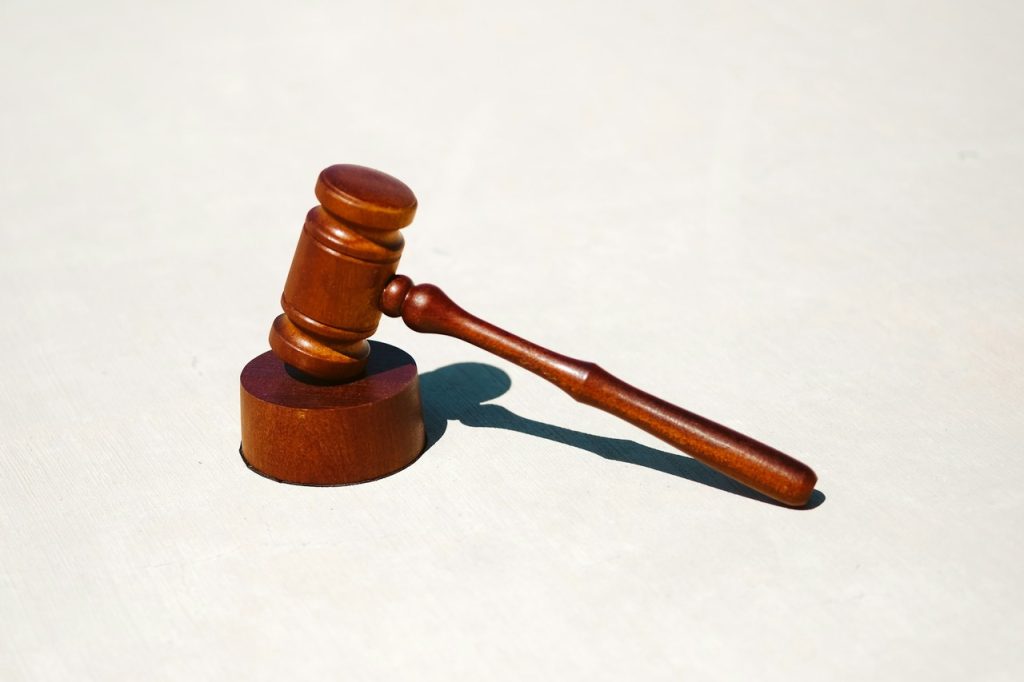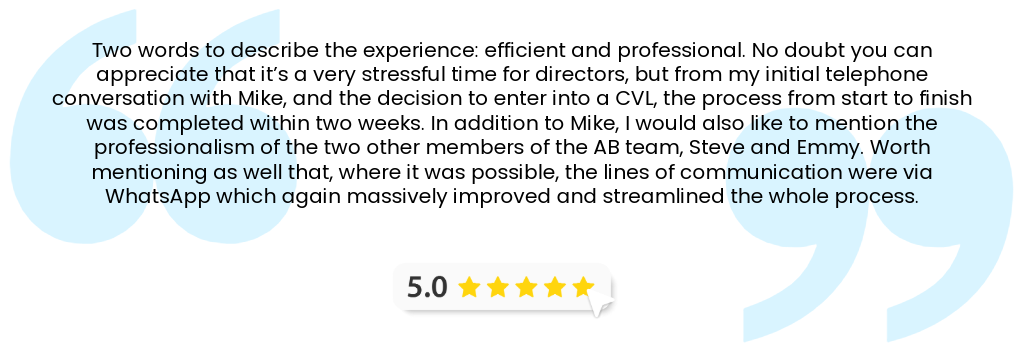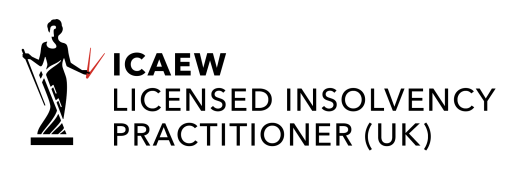Personal Liability Notices: When HMRC Can Make Directors Personally Liable For NIC
Worried that HMRC might pursue you personally for unpaid National Insurance contributions? Personal Liability Notices are designed for specific behaviour, not simple cash flow problems, and they can have serious consequences for directors and shadow directors.
This guide explains how HMRC decides whether to issue a PLN, the evidence it looks for, and the behaviours that increase risk. You will learn how PLNs interact with liquidation, what to prepare if you want to challenge a notice, and the steps that reduce personal exposure.

Understanding Personal Liability Notices
A Personal Liability Notice (PLN) allows HMRC to hold company officers personally responsible for certain unpaid tax debts. It is most often used where HMRC believes non-payment stems from fraud, neglect, or deliberate failure to pay National Insurance contributions (NIC).
Definition and Purpose
A PLN is a formal notice issued by HMRC that transfers liability for specific tax debts from the company to an individual officer. This usually applies to directors but can extend to managers, company secretaries, or anyone involved in controlling company finances.
The main purpose is to prevent individuals from using limited liability as a shield when HMRC considers non-payment to be deliberate or negligent. For example, if a company deducts NIC from employees’ wages but fails to pay it over, HMRC may pursue the responsible officer directly.
You should view a PLN as an enforcement tool rather than a routine debt collection measure. It is not issued lightly and is generally reserved for serious cases where HMRC believes there has been misconduct or repeated avoidance of obligations.
Legal Framework
The framework for PLNs is built on HMRC’s authority to pierce the corporate veil in specific tax-related circumstances. Unlike ordinary tax debts, which remain the company’s responsibility, a PLN allows HMRC to pursue individuals personally.
To issue a PLN, HMRC must demonstrate that the company’s failure to pay resulted from fraud or neglect. This requires evidence that the officer had responsibility for the company’s tax affairs and failed to act appropriately.
If you receive a PLN, you have the right to appeal. Appeals are usually made to the First-tier Tribunal (Tax Chamber). The tribunal considers whether HMRC acted within its powers and whether the officer’s conduct justifies personal liability.
Key Legislation
The statutory basis for PLNs is found in Section 121C of the Social Security Administration Act 1992. This provision specifically allows HMRC to recover unpaid NIC from company officers where the non-payment is due to fraud or neglect.
Other relevant legislation includes:
- Income Tax (Earnings and Pensions) Act 2003 – covering PAYE obligations.
- Finance Acts – which provide HMRC with wider enforcement powers.
- Tribunal Procedure Rules – setting out the process for appeals.
These laws ensure that PLNs are not arbitrary but grounded in clear statutory authority. They also provide safeguards, such as the right to challenge HMRC’s decision before an independent tribunal.
Closing a Limited Company with Debts?
Fast and Stress-Free Solutions.
Start closing your limited company today. Placed into liquidation within 8 days. We fully understand that timing is critical.
Worried about your Bounce Back Loan?
Need to close your limited company? Speak to an expert who’s helped thousands do the same – even with company debts or creditor pressure.
Stop Creditor Pressure
Getting constant calls from creditors? Closing your company through liquidation can give you the relief to move forward.
Directors: Avoid Risks When Winding Up Your Company
We guide you, simply, honestly. Let us handle everything.
Circumstances Triggering Personal Liability for Directors
You can become personally liable for unpaid National Insurance Contributions (NIC) if HMRC finds evidence of deliberate non-payment, fraudulent conduct, or serious neglect in fulfilling your duties. Liability arises only when HMRC can show that the failure was not a simple mistake but the result of actions or omissions that fall below expected standards.
Deliberate Non-Payment of NIC
If you knowingly allow your company to withhold NIC without arranging payment, HMRC may issue a PLN. This usually happens where contributions deducted from employees’ wages are not passed on.
Directors have a legal duty to ensure NIC is paid on time. Choosing to prioritise other creditors or company expenses over statutory obligations can be treated as intentional. HMRC views this as a serious breach because NIC is money held in trust for employees’ benefits.
In practice, a deliberate pattern of non-payment, repeated arrears, or ignoring HMRC’s demands can all strengthen the case against you. Once a PLN is issued, the liability transfers from the company to you personally, including any interest and penalties.
Fraudulent Behaviour
Fraud arises where you actively mislead HMRC or engage in dishonest practices to avoid NIC liabilities. This could include falsifying payroll records, concealing employees, or operating “off the books” arrangements.
If HMRC proves fraud, it can hold you personally accountable regardless of the company’s financial position. Evidence such as false accounting entries, fabricated correspondence, or deliberate under-reporting of wages will be taken into account.
Fraudulent behaviour often results in harsher consequences than simple non-payment. In addition to a PLN, you may also face penalties under the General Anti-Abuse Rule (GAAR) or even criminal investigation if the conduct is serious enough.
Negligence and Recklessness
Negligence applies when you fail to take reasonable care in ensuring NIC is paid. This could involve ignoring payroll responsibilities, failing to keep accurate records, or not putting proper systems in place.
Recklessness goes further and covers situations where you were aware of risks but chose not to act. For example, continuing to trade while knowing NIC liabilities were mounting may be classed as reckless.
HMRC distinguishes between genuine errors and conduct showing disregard for obligations. If your inaction or poor oversight directly leads to unpaid NIC, a PLN can make you personally liable. Directors are expected to demonstrate active oversight and reasonable governance at all times.
Sectors We Support
We support company directors in every sector, from construction firms and logistics companies to pubs, cafés, restaurants, hotels, retailers and manufacturers. Our advice is always clear, confidential and shaped by real experience in your industry. Whether you’re dealing with unpaid tax, supplier pressure or falling income, our team understands the challenges and will guide you through the best next steps.
HMRC’s Powers to Issue Personal Liability Notices
HMRC can transfer a company’s unpaid National Insurance contributions to individual directors when it finds deliberate non-payment or neglect. This power rests on specific legal authority and is applied only in defined circumstances, following investigation and assessment.

Authority and Process
HMRC issues a Personal Liability Notice (PLN) under powers granted by legislation governing National Insurance contributions. This allows the department to pierce the protection of limited liability and hold directors personally responsible.
A PLN does not apply automatically. HMRC must first establish that the company failed to pay NICs and that the failure was linked to fraud, neglect, or deliberate avoidance.
Once satisfied, HMRC serves a formal notice directly on the officer. The notice specifies the amount of NICs transferred and makes you personally liable for that debt.
The process is handled by a specialist HMRC team, not general debt collection units. This ensures that PLNs are only issued where there is a clear basis for personal liability.
Investigation Procedures
Before issuing a PLN, HMRC carries out a fact-finding investigation into the company’s tax affairs. You can expect a review of company records, payment history, and correspondence with HMRC.
Investigators examine whether the company’s failure to pay NICs was due to genuine financial difficulty or a deliberate decision. Evidence such as late filings, ignored warnings, or diversion of funds to other creditors may be taken into account.
HMRC may also interview directors or request explanations in writing. It looks for patterns of behaviour, including repeated non-payment or prioritising other expenses over NICs.
This stage is critical because it determines whether the liability remains with the company or is shifted to you personally. Failure to cooperate can strengthen HMRC’s case.


Assessment Criteria
HMRC applies specific criteria when deciding whether to issue a PLN. The key test is whether the non-payment of NICs arose from fraud or neglect rather than unavoidable financial loss.
Indicators include:
- Deliberate non-payment despite having funds available.
- Persistent default on NICs while other creditors are paid.
- Failure to act when aware of arrears.
If HMRC concludes that your conduct contributed to the debt, it can apportion part or all of the liability to you. The amount transferred reflects the unpaid NICs and may include penalties in some cases.
This assessment ensures that only those directly responsible for the company’s failure face personal liability, rather than directors who acted responsibly but could not prevent insolvency.
Directors’ Responsibilities Regarding National Insurance Contributions
As a director, you carry specific duties for ensuring that National Insurance contributions (NICs) are calculated, deducted, and paid correctly. These responsibilities extend beyond routine payroll tasks and include maintaining accurate records and meeting strict deadlines.
Obligations Under PAYE
You must operate the Pay As You Earn (PAYE) system correctly, which includes deducting NICs from employees’ earnings and paying employer NICs. This responsibility applies to all directors, whether executive or non-executive, if they are involved in the financial management of the company.
Directors’ NICs are calculated differently from employees because they are assessed on an annual earnings basis. This means contributions are based on total income for the tax year rather than on each pay period.
If you fail to handle PAYE obligations properly, HMRC may view this as neglect or deliberate avoidance. In such cases, a Personal Liability Notice (PLN) can transfer liability for unpaid NICs from the company to you personally.
Record-Keeping Requirements
You are required to keep detailed and accurate payroll records that show how NICs have been calculated and paid. These records must include employee details, gross pay, NIC deductions, and employer contributions.
HMRC expects you to retain these records for at least three complete tax years. Failure to maintain proper documentation can lead to penalties and increase the risk of personal liability if NICs remain unpaid.
Good record-keeping also helps you demonstrate compliance if HMRC carries out an investigation. Using payroll software can simplify this process, but you remain ultimately responsible for the accuracy of the information.
Payment Deadlines
You must ensure that NICs are paid to HMRC on time. For most employers, payments are due monthly by the 22nd of the following month if paid electronically, or by the 19th if paid by post.
If your annual PAYE and NIC liability is below a certain threshold, you may be able to pay quarterly instead. However, you must apply this correctly to avoid late payment charges.
Missing payment deadlines can result in interest, penalties, and in serious cases, HMRC issuing a PLN. Meeting deadlines consistently is a key factor in avoiding personal exposure to unpaid NICs.
How HMRC Determines Personal Liability
HMRC assesses whether a director or officer should be held personally responsible by examining the company’s conduct, the individual’s role in decision-making, and the reasons behind unpaid National Insurance contributions. The focus is on whether non-payment resulted from fraud, neglect, or deliberate actions rather than genuine financial difficulty.
Evidence Considered
When deciding liability, HMRC reviews both financial and non-financial records. This includes company accounts, payroll records, board minutes, and correspondence relating to tax obligations. These documents help establish whether contributions were knowingly withheld.
You can also expect HMRC to look at your role and responsibilities. For example, if you had authority over finances or payroll, your actions or omissions carry more weight than those of someone in a non-financial role.
Witness statements, internal communications, and evidence of advice taken from accountants or advisers may also be assessed. HMRC uses this material to determine if you acted reasonably or ignored clear warnings about the company’s obligations.
Key types of evidence include:
- Financial statements and bank records
- PAYE and NIC payment history
- Internal emails and meeting notes
- Professional advice sought or ignored
Decision-Making Process
HMRC does not issue a Personal Liability Notice without first considering the circumstances in detail. Investigators typically review the timeline of missed payments, the company’s financial position, and whether directors made efforts to resolve the debt.
If you continued trading while failing to pay NIC, HMRC may view this as neglect or misconduct. They also consider whether funds were used for other purposes, such as paying suppliers or directors, while ignoring tax liabilities.
Before issuing a notice, HMRC usually contacts the company to gather explanations. If they conclude that the failure was due to deliberate behaviour or neglect, they can transfer the debt to you personally. The notice will state the amount owed, including penalties and interest.
Burden of Proof
The responsibility for proving neglect or fraud lies with HMRC. They must show that the unpaid NICs were not the result of simple financial difficulty but of deliberate or careless behaviour.
This means you are not required to prove your innocence at the outset. However, once HMRC presents its evidence, you may need to provide documents or testimony that demonstrate you acted reasonably.
For example, showing that you sought professional advice, attempted to negotiate with HMRC, or took steps to address cash flow problems can support your position. The standard applied is based on whether a reasonable director in your situation would have acted differently.
If HMRC cannot establish fraud or neglect, they cannot enforce a Personal Liability Notice against you.
Defending Against a Personal Liability Notice
You can dispute a Personal Liability Notice (PLN) if you believe HMRC’s assessment is incorrect, unfair, or fails to consider the circumstances leading to the unpaid National Insurance contributions. The process involves scrutinising HMRC’s evidence, using the appeals system, and presenting mitigating factors that may reduce or remove liability.
Challenging HMRC’s Findings
HMRC must demonstrate that unpaid NICs arose from fraud or neglect. If you can show that the debt resulted from genuine business difficulties, administrative errors, or factors outside your control, you may weaken HMRC’s case.
Request full disclosure of HMRC’s evidence. Review timelines, correspondence, and financial records to identify gaps or inaccuracies in their findings. If HMRC overlooked material facts, highlight these in your response.
You should also provide contemporaneous records such as board minutes, cashflow forecasts, and professional advice you relied upon. These can demonstrate that you acted reasonably and did not deliberately avoid payment.
In practice, a strong challenge involves both factual evidence and legal arguments. Obtaining specialist advice early can improve your position when responding to HMRC’s initial notice.
Appeals Process
If HMRC upholds the PLN after your representations, you have a statutory right to appeal. The first stage is usually a review by an independent HMRC officer not involved in the original decision.
If you remain dissatisfied, you can escalate the appeal to the First-tier Tax Tribunal. The Tribunal will assess whether HMRC has met the legal test for issuing the notice and whether the evidence supports their conclusions.
Deadlines are strict. You normally have 30 days from the date of the notice to lodge an appeal. Missing this deadline can significantly reduce your options.
During the appeal, you can present witness statements, financial documents, and expert opinions. The Tribunal has the power to cancel or vary the notice if it finds HMRC acted incorrectly.
Mitigating Factors
Even if HMRC establishes fraud or neglect, you may still reduce liability by demonstrating mitigating circumstances. These factors do not remove responsibility entirely but can influence the scope of the notice.
Examples include:
- Illness or incapacity affecting your ability to manage the company.
- Reliance on professional advice that later proved incorrect.
- Efforts to remedy the debt, such as negotiating payment plans or injecting personal funds.
Providing evidence of proactive steps shows that you acted in good faith. This can persuade HMRC to limit the notice to a proportion of the debt rather than the full amount.
You should document all actions taken to address the company’s financial difficulties. Clear records help establish that you did not deliberately disregard your obligations.
Consequences of Receiving a Personal Liability Notice
A Personal Liability Notice (PLN) has direct and lasting effects on you as a director. It can create immediate financial obligations, restrict your ability to act in future company roles, and in certain cases expose you to criminal sanctions.

Financial Implications
When HMRC issues a PLN, you become personally responsible for specific unpaid National Insurance contributions (NIC). This liability is separate from the company’s debts and cannot be avoided by relying on limited liability protections.
You may be required to pay:
- Outstanding NICs that HMRC attributes to fraud or neglect
- Interest accrued on the unpaid amounts
- Penalties for late or incorrect payment
This liability can significantly affect your personal finances. HMRC has the power to pursue collection through enforcement measures such as charging orders, attachment of earnings, or bankruptcy proceedings if the debt remains unpaid.
Unlike company debts that may be written off in insolvency, a PLN ties the debt directly to you. This means your personal assets, including savings and property, may be at risk.
Impact on Directors’ Future Roles
A PLN not only affects your current position but also your ability to act as a director in the future. If HMRC considers you responsible for serious neglect or misconduct, this record can be taken into account by regulators and insolvency practitioners.
You may face:
- Disqualification proceedings under the Company Directors Disqualification Act
- Increased scrutiny if you take up roles in other companies
- Reduced trust from lenders, investors, or business partners
Being associated with a PLN can also influence credit checks and professional standing. Even if you continue as a director, you may find it harder to secure finance or attract stakeholders who are cautious about governance risks.
Potential Criminal Proceedings
In some situations, a PLN may highlight conduct that goes beyond civil liability. If HMRC believes fraud was deliberate, they can escalate matters to criminal investigation.
This could involve charges such as:
- Fraudulent evasion of NICs
- Conspiracy to cheat the public revenue
- False accounting
Conviction can result in fines, director disqualification, or imprisonment, depending on the seriousness of the offence. While not every PLN leads to prosecution, the risk increases where there is evidence of intentional wrongdoing or repeated non-compliance.
You should treat the notice as a clear warning that HMRC is prepared to hold you accountable both financially and legally.

Preventative Measures for Directors
You reduce the risk of a Personal Liability Notice by maintaining accurate records, monitoring company finances closely, and acting quickly when problems arise. Taking proactive steps helps you demonstrate diligence and reduces the chance of HMRC attributing unpaid NIC to fraud or neglect.
Best Practices for Compliance
You should maintain accurate payroll records and ensure that PAYE and NIC deductions are paid on time. Late or missing payments are a common trigger for HMRC scrutiny. Keep detailed evidence of when payments were made, how liabilities were calculated, and any communications with HMRC.
It is important to implement clear internal controls. For example:
- Monthly reconciliations of payroll and tax liabilities
- Segregation of duties so one person is not solely responsible for payroll and payments
- Regular internal audits to identify errors early
You should also ensure directors’ board minutes record discussions around tax compliance. This shows you considered obligations carefully and took reasonable steps to meet them.

Early Warning Signs
You need to recognise indicators that the company may fail to meet its NIC obligations. Cash flow shortages, repeated delays in paying HMRC, or reliance on short-term borrowing to cover payroll are all red flags.
Another warning sign is when suppliers or creditors are pressing for payment while HMRC liabilities are left outstanding. This pattern shows prioritisation issues that HMRC may interpret as neglect.
If you notice increasing arrears, missed deadlines, or reliance on informal payment arrangements, act immediately. Contact HMRC to discuss a Time to Pay arrangement rather than ignoring the problem. Early engagement can reduce the risk of a Personal Liability Notice.
Seeking Professional Advice
When financial or compliance issues arise, you should seek advice from qualified professionals. Accountants, tax advisers, or insolvency practitioners can help you assess risks and recommend practical steps.
Professional advisers can review your systems, highlight weaknesses, and support negotiations with HMRC. For example, they can prepare accurate financial forecasts or structure repayment plans.
You should also consider legal advice if HMRC begins an investigation. A solicitor experienced in tax disputes can help you respond effectively to enquiries and reduce the chance of personal liability being imposed. Acting early with professional guidance often prevents matters from escalating.
Recent Developments and Case Law
In recent years, HMRC has expanded its use of Personal Liability Notices (PLNs) to hold directors personally responsible for unpaid National Insurance Contributions (NIC). This reflects a broader trend of strengthening enforcement powers and reducing opportunities for directors to avoid liabilities through company structures.
A key point confirmed by the Upper Tribunal is that HMRC carries the initial burden of proof when issuing a PLN. Once HMRC demonstrates that the notice was correctly issued, the responsibility shifts to you, as the taxpayer, to prove that the underlying assessment is excessive.
Recent tribunal cases highlight how these rules operate in practice. For example, directors have faced liability for substantial NIC debts, sometimes exceeding £100,000, where companies failed to meet their obligations. In one case, HMRC successfully argued that a director’s conduct justified personal liability for arrears owed by the company.
Since the Finance Act 2020, HMRC has also gained the ability to issue Joint and Several Liability Notices (JLNs). While separate from PLNs, these powers overlap in purpose by allowing HMRC to pursue directors directly in situations involving insolvency or suspected abuse of the insolvency framework.
Key developments at a glance:
- Burden of proof: HMRC first, then the director.
- Case outcomes: Directors increasingly held liable for NIC debts.
- New powers: JLNs expand HMRC’s reach beyond PLNs.
These cases show how the courts have supported HMRC’s approach, reinforcing the importance of directors maintaining compliance with NIC obligations.
Free Confidential Advice & Quote


Frequently Asked Questions
You may face personal liability for unpaid National Insurance Contributions if HMRC concludes that your actions as a director contributed to the debt. The process involves strict criteria, potential financial consequences, and formal procedures for appeal.
What circumstances warrant the issuance of a Personal Liability Notice to company directors by HMRC?
HMRC can issue a Personal Liability Notice (PLN) when it believes that unpaid National Insurance Contributions (NIC) are the result of fraud or neglect by a director. This usually arises when a company fails to pay its NIC obligations and there is evidence that the director’s conduct directly caused or contributed to the non-payment.
How does HMRC determine the culpability of directors for unpaid National Insurance Contributions?
HMRC reviews the company’s payment history, the timing of defaults, and the reasons behind the non-payment. It considers whether the director acted responsibly or whether there was deliberate neglect. Evidence of mismanagement, avoidance, or failure to act in the company’s financial responsibilities can lead to a finding of culpability.
What are the potential financial implications for directors receiving a Personal Liability Notice?
If you receive a PLN, you become personally liable for the unpaid NIC specified in the notice. This liability can include the principal debt, any penalties, and interest charges that apply. The financial impact can be substantial, as the debt is enforceable against your personal assets.
Can a Personal Liability Notice be challenged or appealed, and if so, how?
You have the right to challenge a PLN if you believe it was issued incorrectly. The first step is to request a review by HMRC. If the decision is upheld, you can appeal to the tax tribunal, where an independent review of the facts and evidence will take place.
What are the time limits within which HMRC can issue a Personal Liability Notice to a director?
HMRC must act within statutory time limits when issuing a PLN. While the exact time frame depends on the circumstances, in most cases HMRC is required to issue the notice within the same limitation periods that apply to the underlying NIC liability. These can typically extend for several years in cases of fraud or neglect.
What steps can directors take to mitigate the risk of being issued a Personal Liability Notice?
You can reduce risk by ensuring accurate and timely payment of NIC and other tax obligations. Keeping thorough financial records, seeking professional advice when difficulties arise, and taking action at the first sign of insolvency are key. Demonstrating that you acted responsibly and took reasonable steps to meet obligations helps protect you from personal liability.
